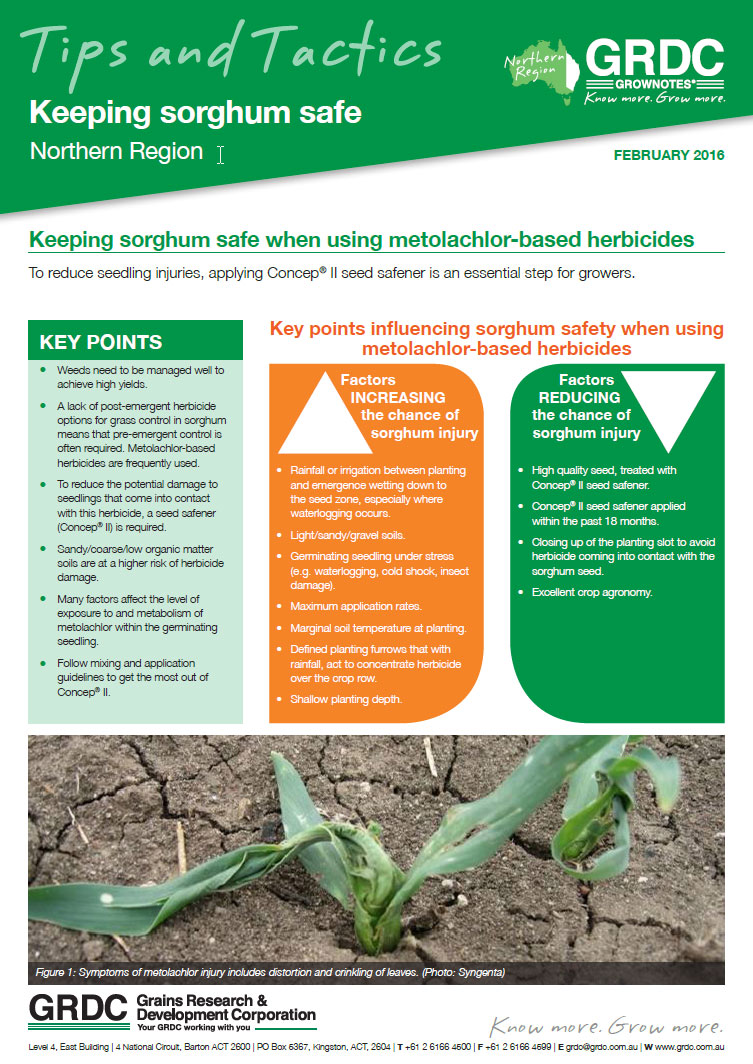Herbicide behaviour
Herbicide behaviour
Herbicides are an essential tool enabling cost-effective management of weeds as part of an integrated strategy. Herbicides represent a major input cost for grain growers.
Hence, understanding how herbicides work and the factors which impact their usefulness is critical to maximise the effectiveness of these valuable tools.
Although widely used, herbicides are complex and optimising their effectiveness can be challenging. Maximising herbicide performance becomes especially critical as herbicide resistance increases.
Understanding the science behind how herbicides work in different environments also helps enable forensic evaluation of the causes of spray failures when they occur.
To assist growers and advisers with their decision-making, the Grains Research and Development Corporation has developed, and will continue to produce, resources focused on optimising herbicide use through fostering a greater understanding of their behaviour.
Reference manuals and factsheets
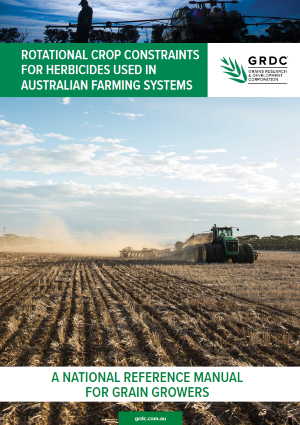
Rotational crop constraints for herbicides used in Australian farming systems
This guide has been developed to provide grain growers and advisers with relevant information to assist in planning the use of herbicides into crop sequences and in managing rotation constraints.
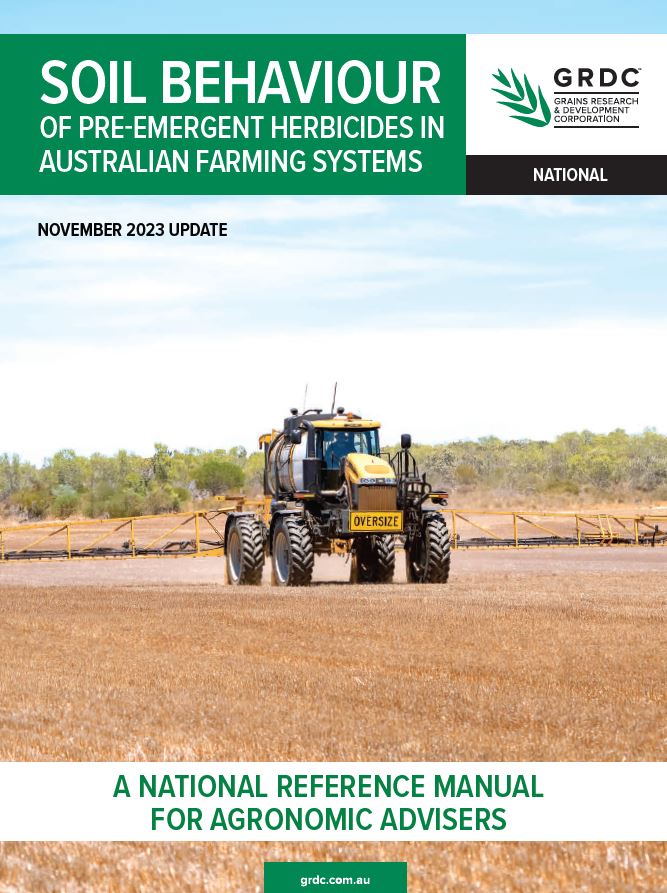
Soil behaviour of pre-emergent herbicides in Australian farming systems
Weed management is critical to profitable farming. Using pre-emergent herbicides can play a big role in a weed control strategy. They are cost-effective, remove early-season weeds, and protect crop yields.
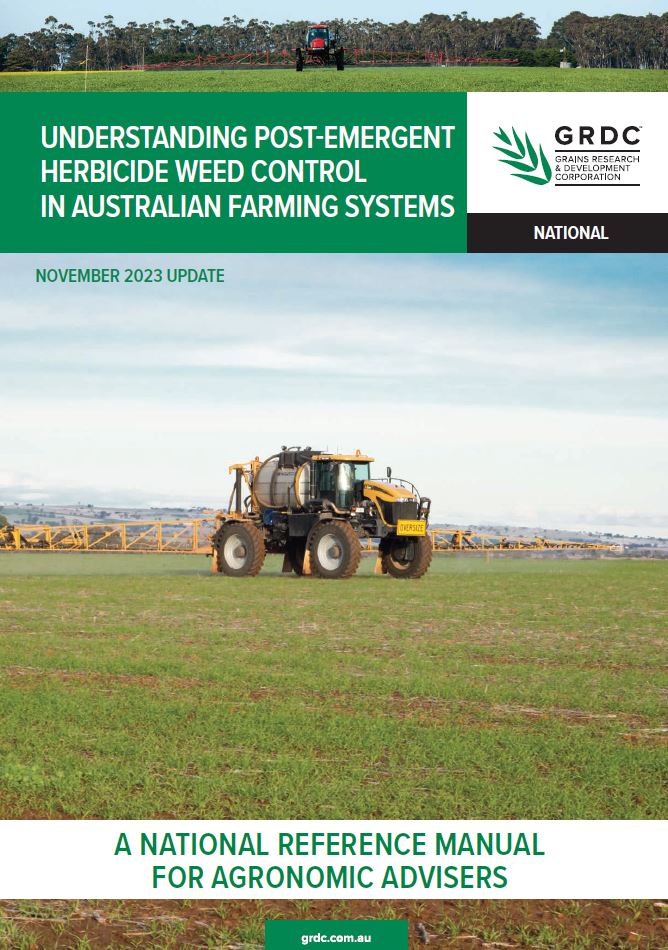
Understanding post-emergent herbicide weed control in Australian farming systems
Understanding post-emergent herbicide weed control in Australian farming systems – a national reference manual for agronomic advisers.
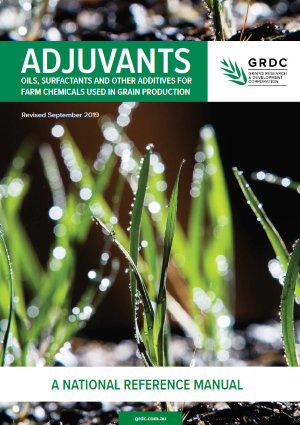
Adjuvants Booklet
The 2019 adjuvants booklet provides a practical guide to the use of adjuvants in a variety of farm chemicals including herbicides, fungicides, insecticides and growth regulator products.
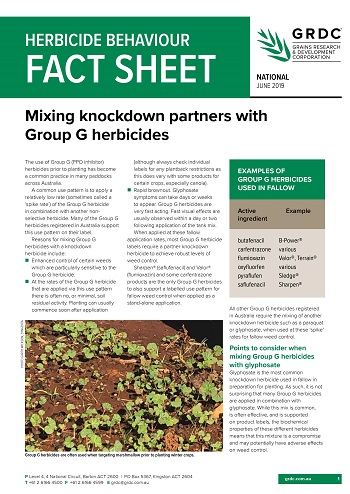
Mixing knockdown partners with Group G herbicides
This fact sheet discusses some of the considerations in selecting the choice of tank mix partner for Group G herbicides in fallow.
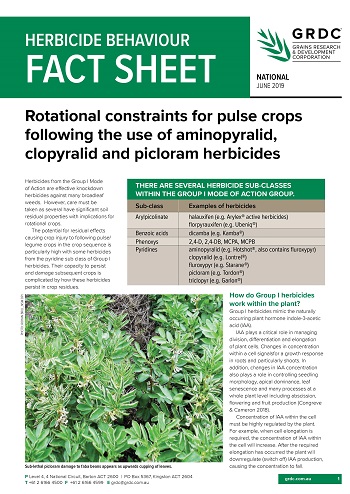
Rotational constraints for pulse crops following the use of aminopyralid, clopyralid and picloram herbicides
Herbicides from the Group I Mode of Action are effective knockdown herbicides against many broadleaf weeds. Use this publication to learn more about rotational constraints for pulse crops.
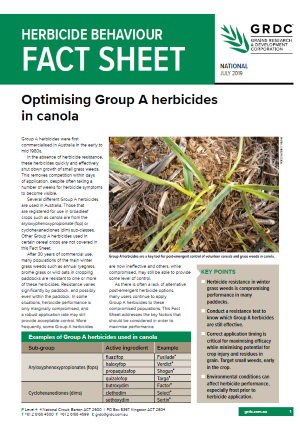
Optimising Group A herbicides in canola
Group A herbicides control volunteer cereals and grass weeds in canola. They are most effective when there is no herbicide resistance. However, resistance in winter grass weeds is a problem.
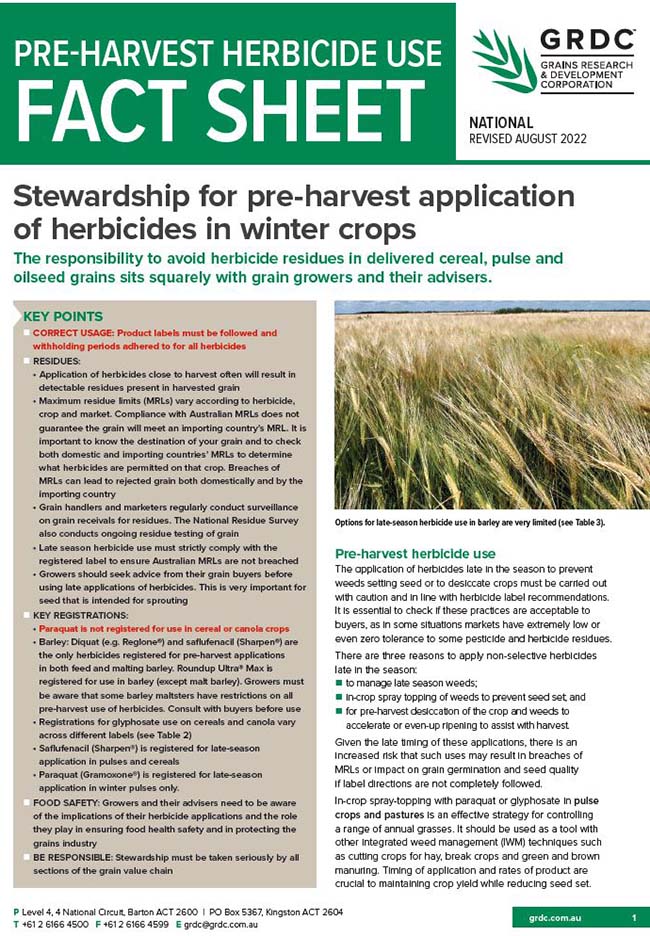
Pre-harvest herbicide use
Grain growers and advisers are responsible for ensuring delivered grain does not exceed maximum residue levels (MRLs). This fact sheet answers common questions about applying herbicides pre-harvest in winter crops.
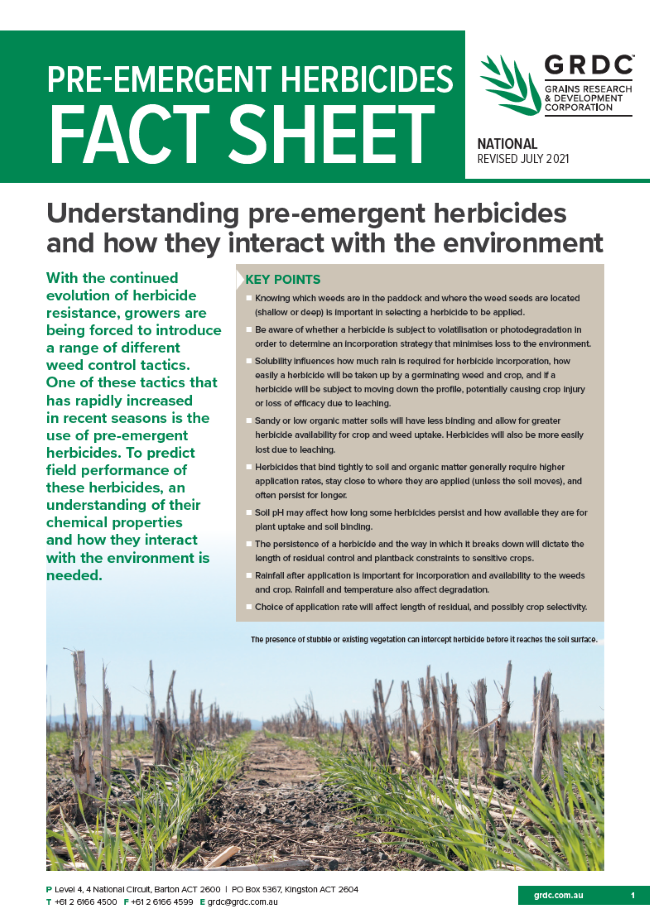
Pre-emergent herbicides fact sheet
With the continued evolution of herbicide resistance, growers are being forced to introduce a range of different weed control tactics.

